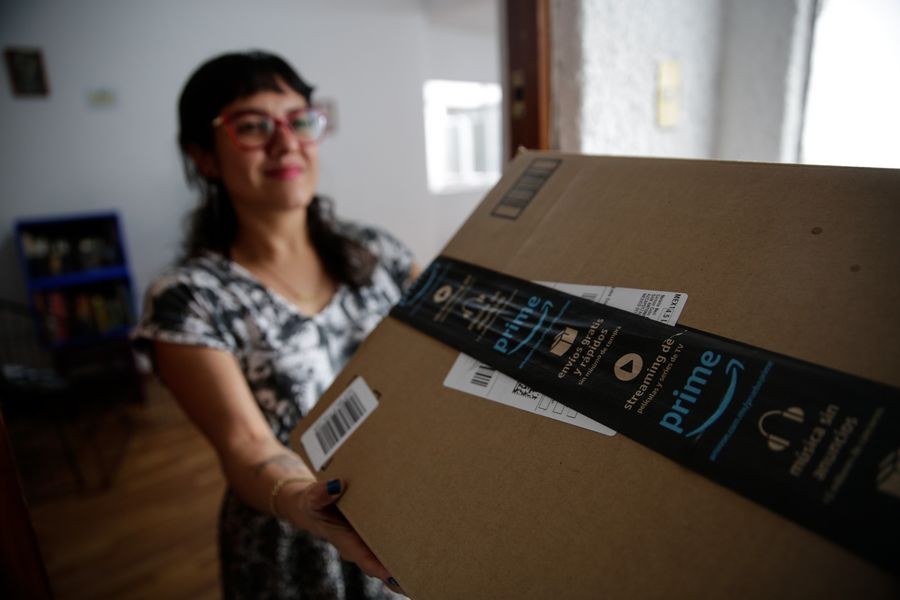Life under COVID-19 has given many Mexicans that extra nudge they needed to let go of their fears of online fraud and credit card theft to wade into the world of e-commerce, reports Xinhua.
Paula Gutierrez, a 41-year-old graphic designer, is one of them. For a long time, she was reluctant to purchase anything online, despite recommendations from friends.
Today -- more than a month since Mexico reported its first case of the novel coronavirus -- Gutierrez has not only bought various items online, she is also a satisfied customer.
"Necessity forced me to buy the products (via the internet), as authorities called for avoiding public transit," and other crowded places, and closed non-essential stores and shopping centres, she said.
"It's a quick and simple way to get what I need while I'm in isolation," said Gutierrez.
"I have found a wide range of things, along with discounts that make it attractive, and I haven't had problems with my cards," she added.
Gutierrez's first online purchases were an office chair, small desk and stationery supplies, since the company she works for, like numerous others, asked its employees to work from home to comply with the social distancing measures.
According to the General Director of the Mexican Association of Online Sales (AMVO), Pierre-Claude Blaise, the epidemic has served as a kind of turning point for e-commerce in Mexico, as once reluctant potential clients like Gutierrez embrace this new form of shopping.
In some parts of the country, online sales have shot up by triple digits, after average growth of 35 per cent in 2019, said Blaise.
"There are categories, such as food and basic items," that have expanded, "but we are also seeing growth in on-demand content and in financial services," Blaise said.
"Because of what is happening, there are people who are going to begin to consume products (online) with a lot of frequency. We expect that is going to increase e-commerce, it is going to change habits," he added.
It's still too soon to predict e-commerce trends in Mexico in the near future, especially with most economists forecasting an acute contraction in economic growth in 2020, some by as much as eight percent.
But one thing is certain, said Blaise, the epidemic has led numerous people to try buying something online for the first time, and for some of them it won't be the last.
"Once you have tried buying groceries online, for example, well it's so convenient that it is likely to continue even after the coronavirus," he said.
According to Latin American e-commerce giant Mercado Libre, between March 12 and 19, online sales of household items like cleaning detergents skyrocketed 400 per cent, and pharmaceutical items jumped 114 per cent.
Over that seven-day period, the fastest selling items were face masks, rubbing alcohol and alcohol-based gel disinfectants.
Mexico reported its first case of COVID-19 on February 28.
Mexico's e-commerce sector definitely has room to grow. In 2018, the sector accounted for just 5 per cent of gross domestic product (GDP), whereas in China, it accounted for 34.8 per cent of GDP.


